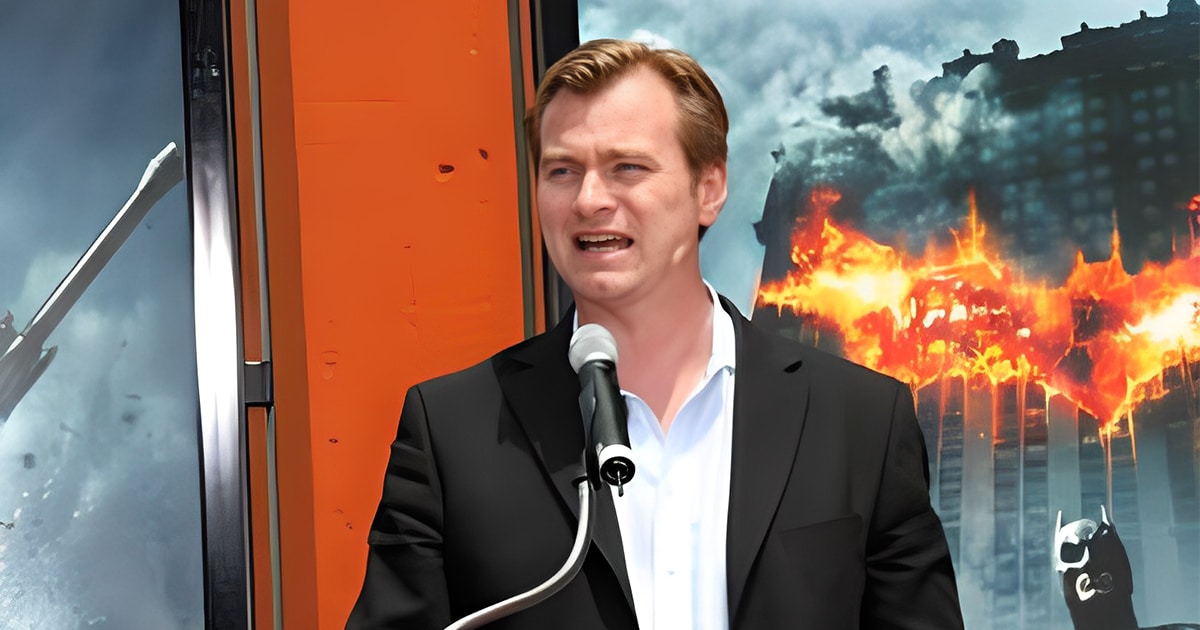Table of Contents
Embark on a captivating journey through the illustrious Christopher Nolan filmography, a director whose name has become synonymous with innovation and storytelling mastery. From his debut in 1998 with “Following” to the recent buzz around his upcoming project, “Oppenheimer” (2023), Nolan has consistently pushed the boundaries of cinema. In this blog, we will explore the trajectory of his career, rank his films from worst to best, touch upon the lesser-known gem “Insomnia,” and answer burning FAQs about Nolan’s work.
Christopher Nolan filmography and its impact on modern cinema
Christopher Nolan’s filmography is a remarkable journey through the realms of mind-bending narratives, intricate storytelling, and groundbreaking cinema. It began with his debut feature, “Following” in 1998, where he showcased early signs of his unique directorial style. Nolan’s breakthrough came with “Memento” in 2000, a non-linear thriller that set the stage for his reputation as a master storyteller. The director then embarked on redefining superhero epics with “The Dark Knight Trilogy” (2005-2012), where he grounded iconic characters in a realistic world. His exploration of dreams within dreams in “Inception” (2010) captivated audiences worldwide, while “Interstellar” (2014) took them on a cosmic journey through space and time. “Dunkirk” (2017) demonstrated Nolan’s versatility with its immersive depiction of World War II. As we eagerly await his future endeavors, including the highly anticipated “Oppenheimer” (2023), Christopher Nolan filmography stands as a testament to his enduring impact on modern cinema.
Listing Christopher Nolan Movies From Worst to Best
Let us check out Christopher Nolan movies in order of worst to best:
Following (1998)
Christopher Nolan’s directorial debut, “Following,” introduces audiences to his early narrative complexities. This neo-noir thriller, shot on a modest budget, sets the stage for Nolan’s penchant for intricate storytelling and non-linear structures.
Tenet (2020)
“Tenet” catapults viewers into a mind-bending experience of time inversion, showcasing Nolan’s prowess in blending high-concept ideas with gripping action sequences. The film’s complexity, coupled with stunning visuals, reaffirms Nolan’s reputation for pushing cinematic boundaries.
Interstellar (2014)
In “Interstellar,” Nolan takes audiences on an epic cosmic journey, seamlessly intertwining hard science fiction with emotional storytelling. The film’s breathtaking visuals and exploration of space and time contribute to its status as a modern science fiction classic.
The Dark Knight Rises (2012)
The concluding chapter of Nolan’s Batman trilogy, “The Dark Knight Rises,” delves into themes of hope, fear, and redemption. Nolan successfully brings closure to the saga, combining character depth with spectacular set pieces.
Insomnia (2002)
Nolan’s psychological thriller, “Insomnia,” stands out for its exploration of guilt and morality. Insomnia Christopher Nolan, stars Al Pacino and Robin Williams, and the film offers a gripping narrative set against the atmospheric backdrop of a perpetual daylight Alaskan town.
Inception (2010)
With “Inception,” Nolan delivers a mind-bending heist film set within the architecture of dreams. The film’s intricate layers, stunning visuals, and also Hans Zimmer’s iconic score make it a cinematic masterpiece that challenges the boundaries of imagination.
Batman Begins (2005)
“Batman Begins” marks Nolan’s reimagining of the superhero genre. This origin story not only revitalizes the Batman franchise but also sets a new standard by grounding the character in realism, laying the foundation for a darker and more sophisticated take on superheroes.
The Prestige (2006)
Nolan explores the world of magic and obsession in “The Prestige.” The film, featuring Christian Bale and Hugh Jackman, intricately weaves a tale of rivalry and sacrifice, keeping audiences on the edge of their seats until the final reveal.
Dunkirk (2017)
“Dunkirk” stands as Nolan’s immersive war film, focusing on the evacuation of Allied soldiers during World War II. Known for its minimal dialogue, practical effects, and intense realism, the film offers a unique and visceral portrayal of war.
Oppenheimer (2023)
While anticipation surrounds Nolan’s upcoming project “Oppenheimer,” details about the film are yet to be revealed. Set to explore the life of J. Robert Oppenheimer, the film holds promise for another intriguing addition to Nolan’s diverse filmography.
Memento (2000)
“Memento” solidifies Nolan’s reputation as a master storyteller with its reverse chronological narrative. The film, centered on short-term memory loss, keeps audiences engaged as they unravel the mystery alongside the protagonist.
The Dark Knight (2008)
The second installment of Nolan’s Batman trilogy, “The Dark Knight,” is widely praised for Heath Ledger’s iconic portrayal of the Joker. The film delves into themes of chaos, morality, and the thin line between hero and villain, earning critical acclaim and numerous awards.
Conclusion
In conclusion, Christopher Nolan filmography is a captivating odyssey through the realms of imagination, complexity, and cinematic innovation. From the inception of his career with “Following” to the cosmic exploration of “Interstellar” and the intricate dreamscapes of “Inception,” Nolan has consistently pushed the boundaries of storytelling. Each film, from the Dark Knight trilogy to the war-torn landscapes of “Dunkirk,” adds a unique chapter to his legacy. As we eagerly anticipate the unveiling of “Oppenheimer,” the promise of yet another thought-provoking narrative looms on the horizon. Now, it is your turn to embark on this cinematic journey. Therefore whether you are revisiting Nolan’s classics or eagerly awaiting his next masterpiece, let his films inspire, challenge, and ignite your imagination. Hence the world of Christopher Nolan awaits – lights, camera, action!
For more such interesting articles, stay tuned to our blog page.
FAQ’s:
- Why did Japan ban Oppenheimer? While the exact reasons behind Japan’s ban on “Oppenheimer” are speculative, it may be related to the sensitive nature of J. Robert Oppenheimer’s role in the development of the atomic bomb.
- What is the most underrated movie of Nolan? Many consider “Insomnia” as Nolan’s most underrated film. Despite its critical acclaim, it often takes a backseat to his more high-profile projects.
- Why did Nolan quit Batman? Christopher Nolan concluded his Batman trilogy with “The Dark Knight Rises”. He intended to provide a complete and also satisfying arc for the character. He chose not to continue the story to maintain the integrity of the trilogy.















